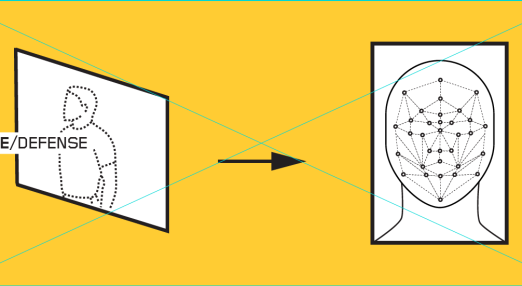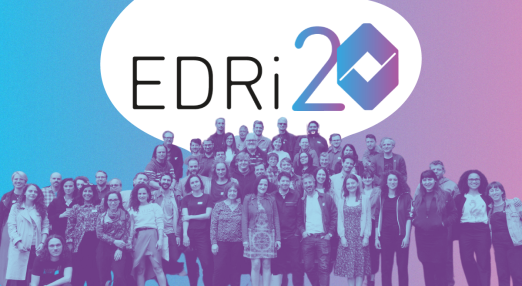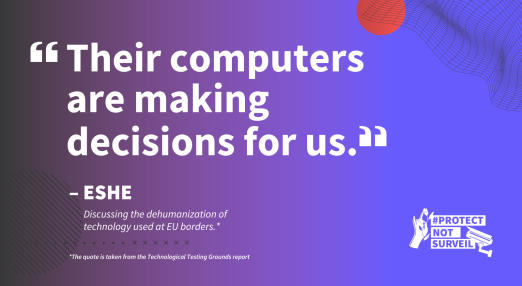PEGA Committee must call for an EU-wide ban on spyware
The European Parliament’s inquiry committee on Pegasus and other similar spyware (PEGA) is working on a set of recommendations for the regulation of the use of intrusive spyware by EU Member States. It is still unclear whether the Committee will dare to set vitally needed red lines and call for a sufficiently protective European Union-wide framework against spyware in its non-binding report. EDRi submitted amendments to strengthen the demands for the protection of affected people and democratic values.
Filter resources
-

PEGA Committee must call for an EU-wide ban on spyware
The European Parliament’s inquiry committee on Pegasus and other similar spyware (PEGA) is working on a set of recommendations for the regulation of the use of intrusive spyware by EU Member States. It is still unclear whether the Committee will dare to set vitally needed red lines and call for a sufficiently protective European Union-wide framework against spyware in its non-binding report. EDRi submitted amendments to strengthen the demands for the protection of affected people and democratic values.
Read more
-

SERBIA: Government retracts again on biometric surveillance
Another attempt to legalise mass biometric surveillance in Serbia was ditched by the government in a sudden U-turn just as 2022 was drawing to a close. In a little over a year this was the second draft law on internal affairs failing to pass the public hearing stage before its formal introduction to the parliamentary vote.
Read more
-

Is the EU protecting people from Pegasus spyware?
Spyware is an extremely invasive surveillance tool and a global threat to human rights and democracy. Since the initial Pegasus Project revelations, we’ve learned that governments and private actors in over 46 countries worldwide, including EU member states, have used invasive spyware to target and silence journalists, human rights defenders, political opponents, and dissidents.
Read more
-

EDRi 2.0: The European Digital Rights network turns 20
This year, EDRi turns 20, marking two decades of building a movement of NGOs, experts, advocates, technologists, academics and impacted communities. Together, we have been defending and advancing digital rights across Europe. Read about our 20-year impact below and join us in celebrating our anniversary.
Read more
-

EDRi-gram, 16 February 2023
In this edition of the EDRi-gram, we invite you to join us in celebrating EDRi’s 20th birthday by reading our impact journey and sending us your wishes and vision for the future of digital rights. In our digital rights news updates, we are looking at the Serbian government’s second attempt to legalise biometric mass surveillance. We are also exploring how TikTok’s new feature will use your emotions to make even more profit.
Read more
-

TikTok’s “Focused View”: the creepy new feature aims to monetise your emotions
Ever heard of TikTok’s “Focused View”? With this new feature launched in October 2022, TikTok claims it can track your emotions to sell ads. We have our doubts if that’s even possible – but it certainly is invading your privacy to drive profits. Here is why, and what it means for users in Europe.
Read more
-

TrustPid: Baking ad tracking into the internet infrastructure
A consortium of Europe’s largest telecommunications operators (telcos) has proposed a new kind of tracking ads system to challenge commercial surveillance heavyweights like Google and Facebook. The new tracking system, misleadingly dubbed ‘TrustPid’, would be baked into the internet’s network infrastructure – potentially with little recourse or defence for users.
Read more
-

#ProtectNotSurveil: EU must ban AI uses against people on the move
As the European Parliament regulates the most harmful AI technologies, a coalition of civil society calls on the EU to #ProtectNotSurveil people on the move.
Read more
-

e-Evidence compromise blows a hole in fundamental rights safeguards
In December 2022, the Council and the European Parliament agreed on a final compromise text on the so-called ‘e-Evidence’ proposals. With major concessions given to the Member States’ position, the results of these trilogues negotiations are of bad omen for people’s rights and freedoms.
Read more
-

EDRi-gram, 1 February 2023
In this first EDRigram edition of 2023, we want to take a look back at what we collectively achieved in 2022. Together, we mobilised people and organisations in key moments and continued to strengthen our network and to contribute to the design of a decolonising programme for the field. We are also exploring why the European Commission's blocking obligations for internet services providers in the context of addressing the spread of child sexual abuse material online are impossible. Stay tuned: Today, the European Parliament is voting on the regulation on the transparency and targeting of political advertising proposal which aims to tackle data-driven vote manipulation.
Read more
-

Phone unlocking vs biometric mass surveillance: what’s the difference?
Facial recognition is one of the most hotly-debated topics in the European Union’s (EU) Artificial Intelligence Act. Lawmakers are more aware than ever of the risks posed by automated surveillance systems which pervasively track our faces – as well as our bodies and movements - across time and place. This can amount to biometric mass surveillance (BMS), which undermines our anonymity and freedom, and weaponises our faces and bodies against us. The article explores the types of biometric technology and their implications.
Read more
-

Member States want internet service providers to do the impossible in the fight against child sexual abuse
In May 2022, the European Commission presented its proposal for a Regulation to combat child sexual abuse (CSA) online. The proposal contains a number of privacy intrusive provisions, including obligations for platforms to indiscriminately scan the private communications of all users (dubbed ”chat control”). There are also blocking obligations for internet services providers (ISPs), which is the focus of this article.
Read more
